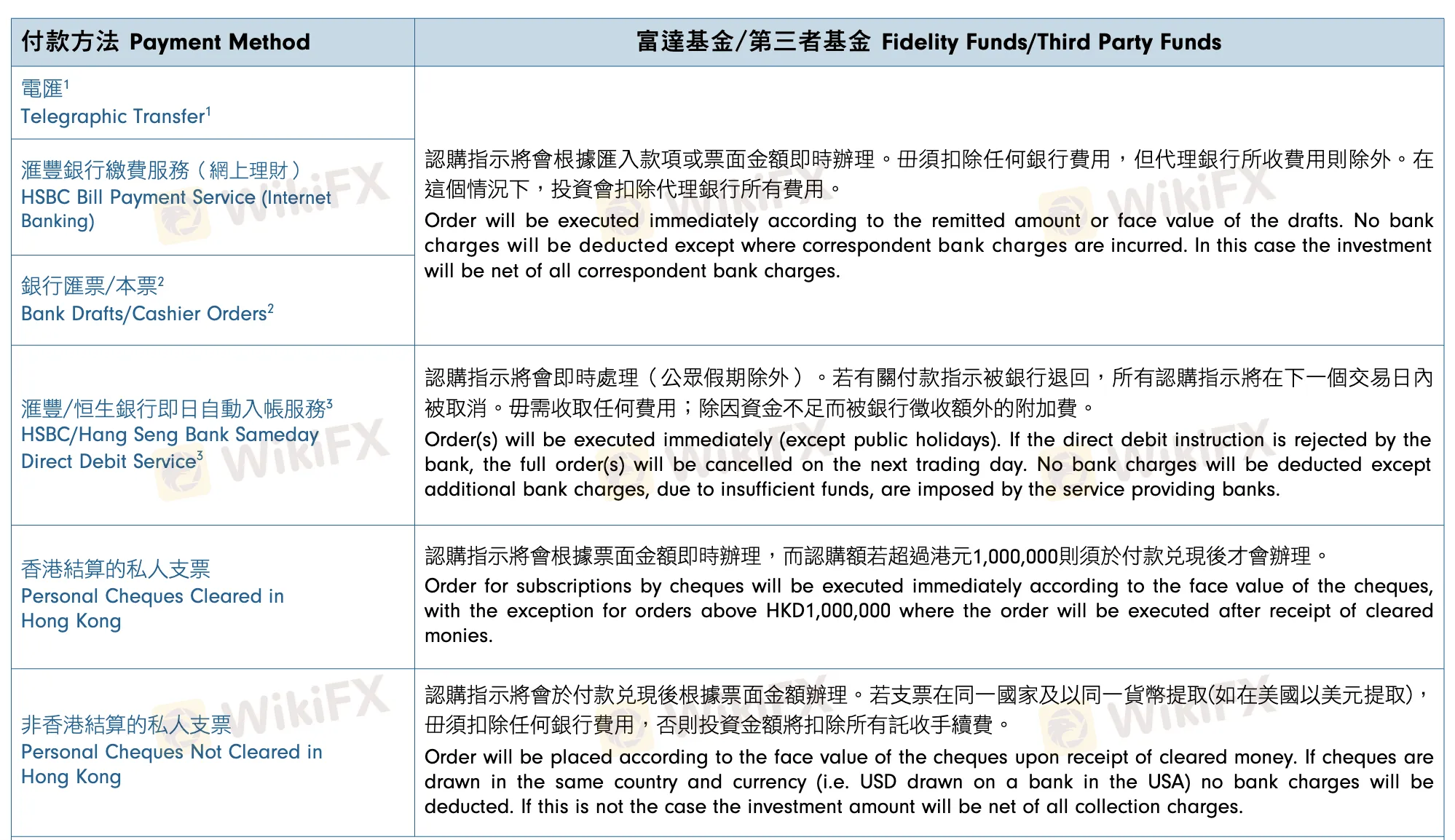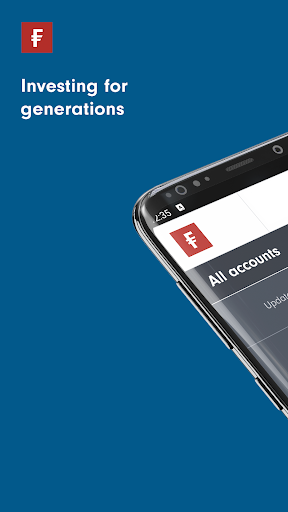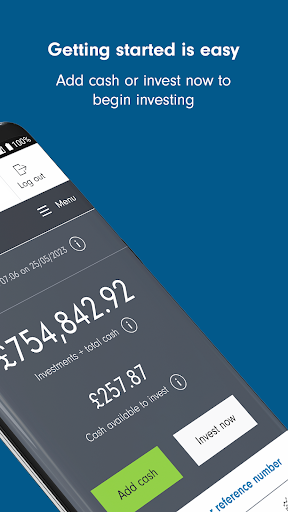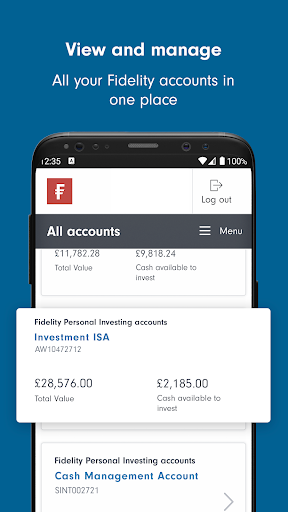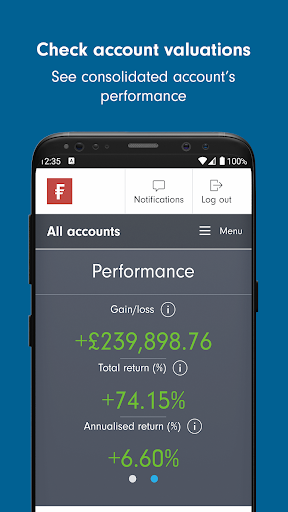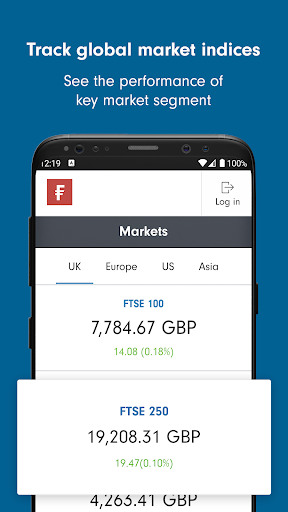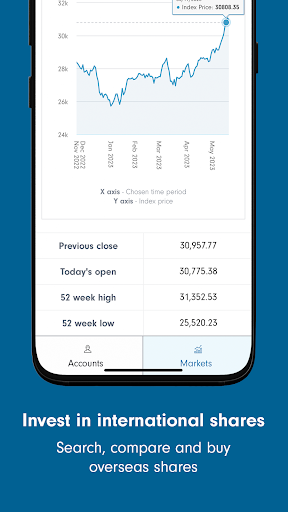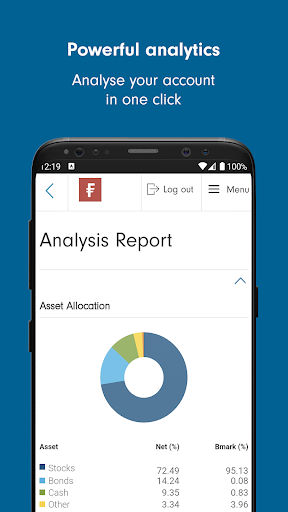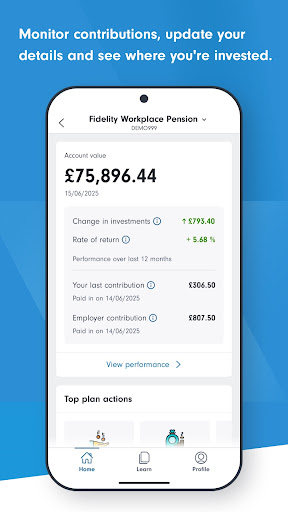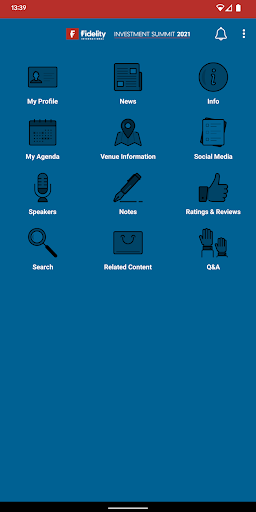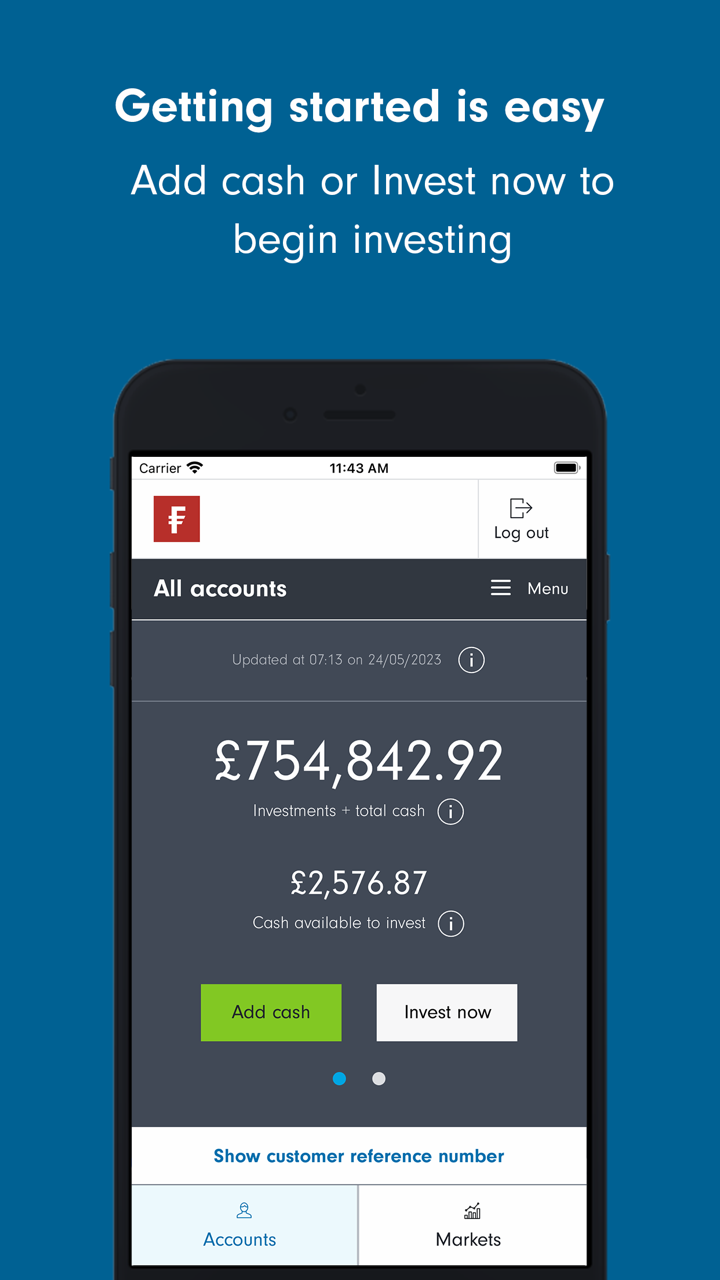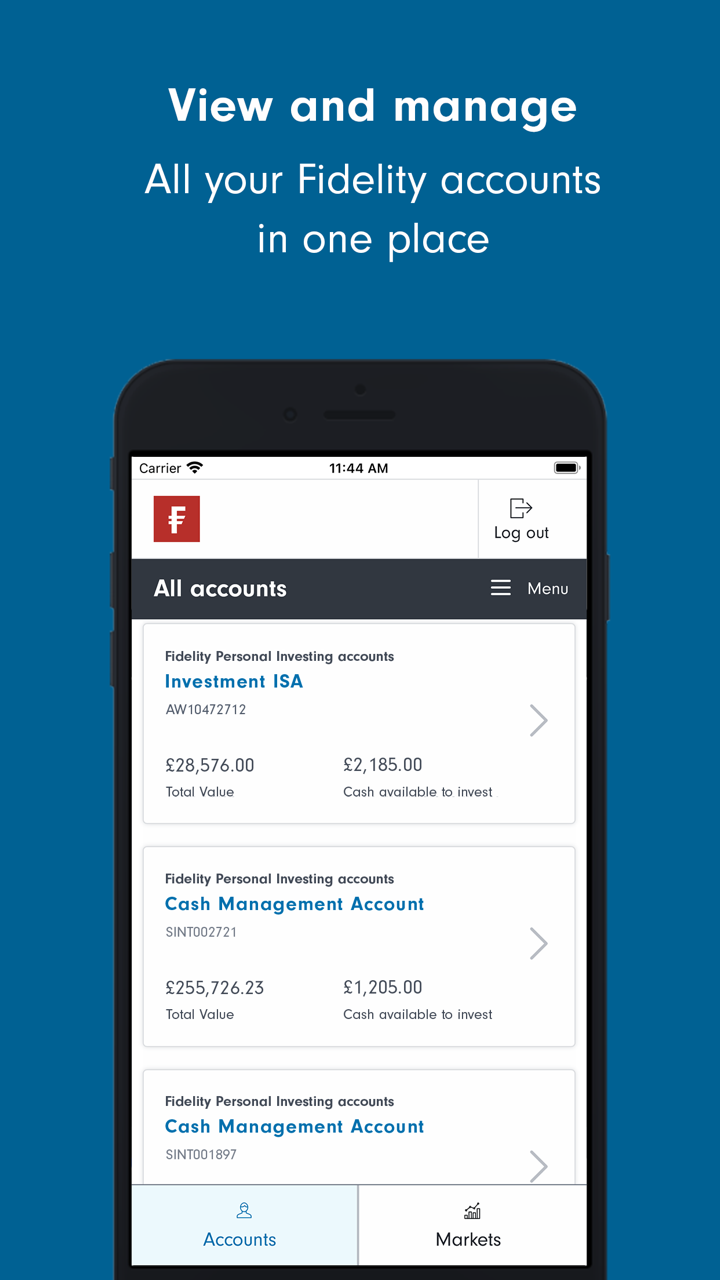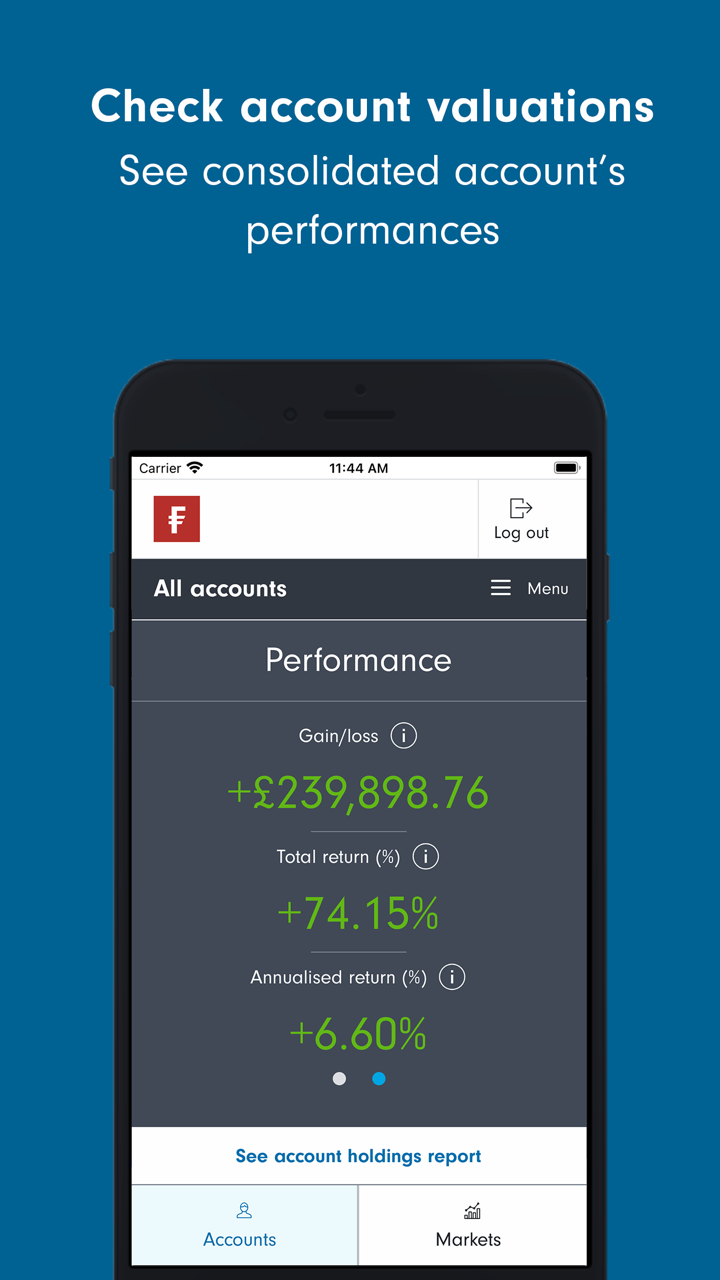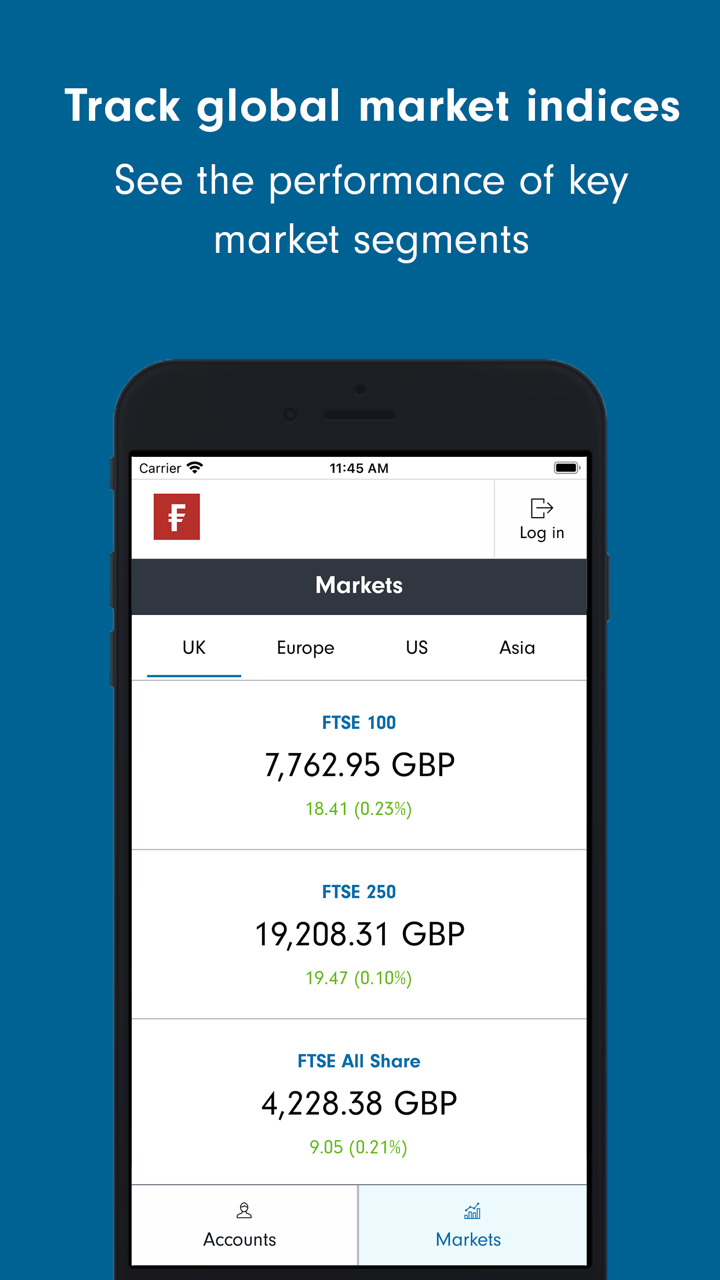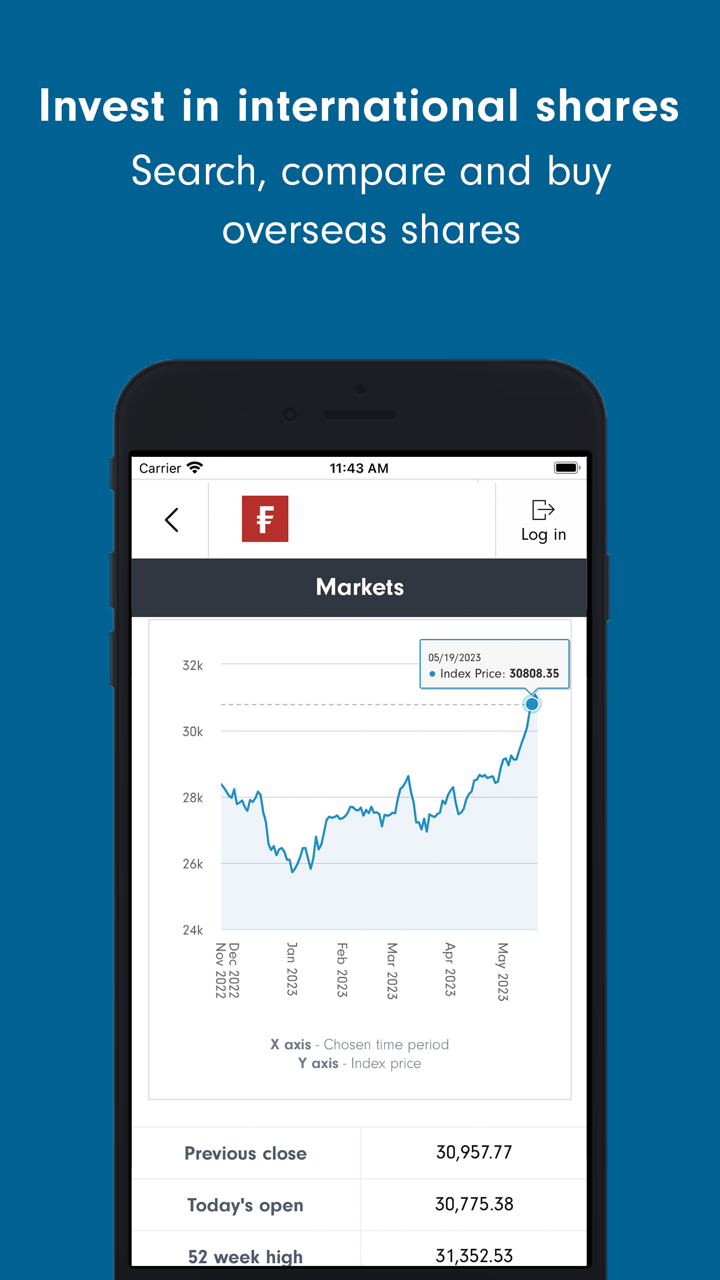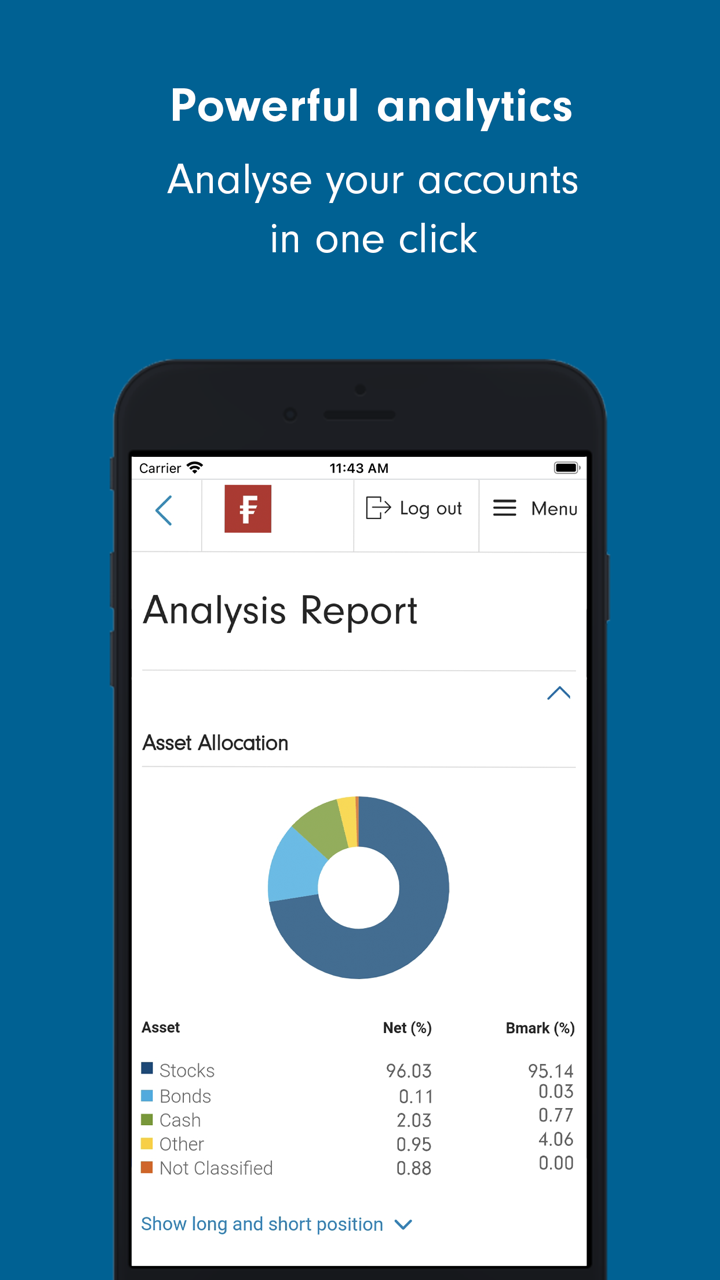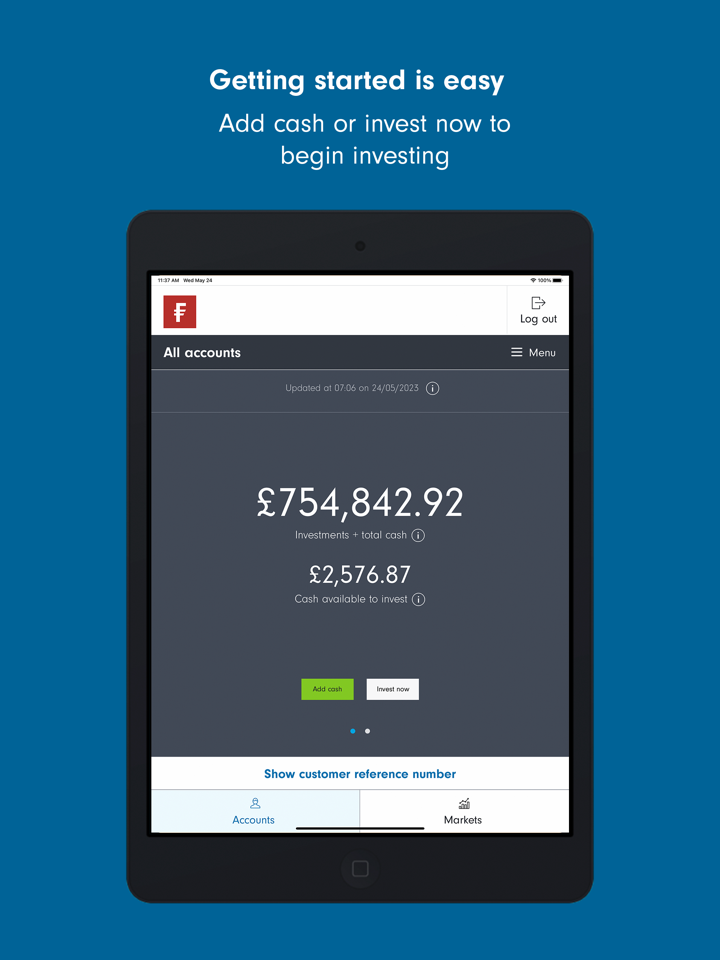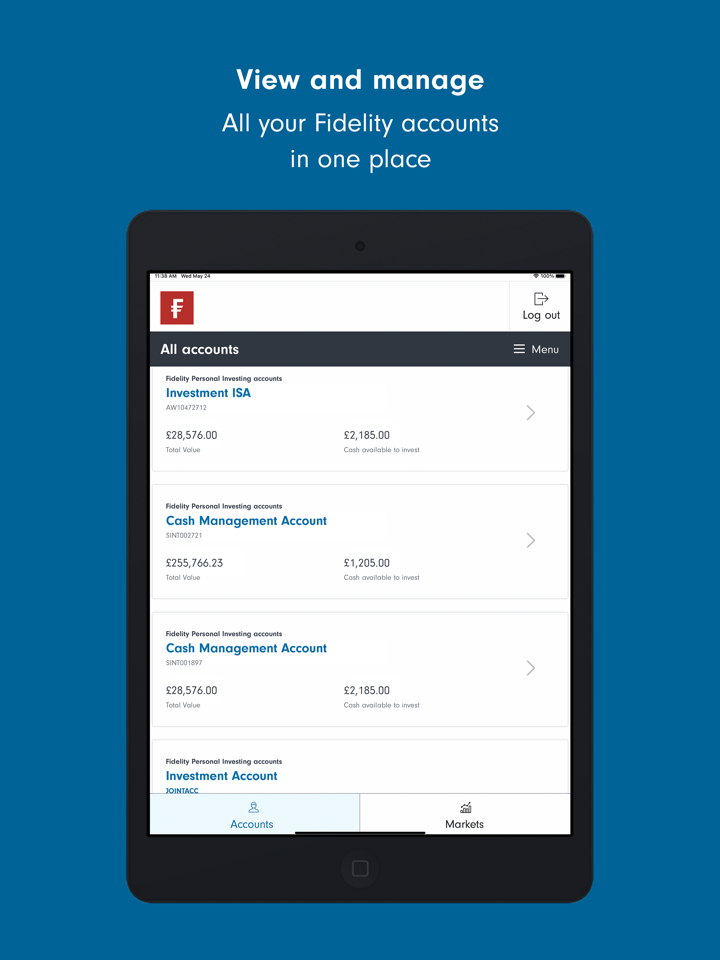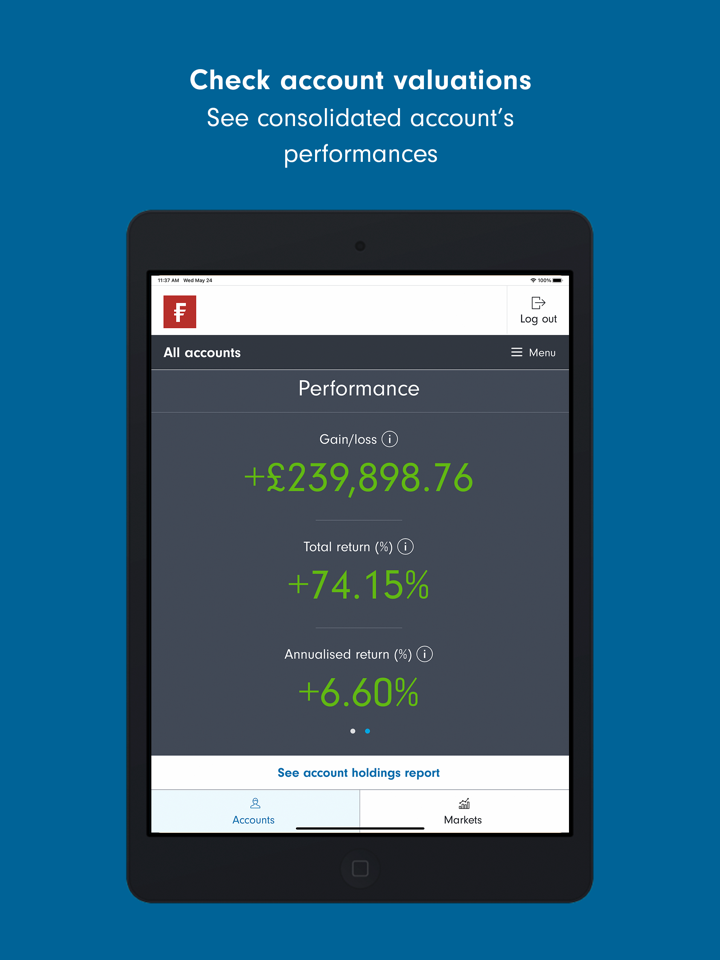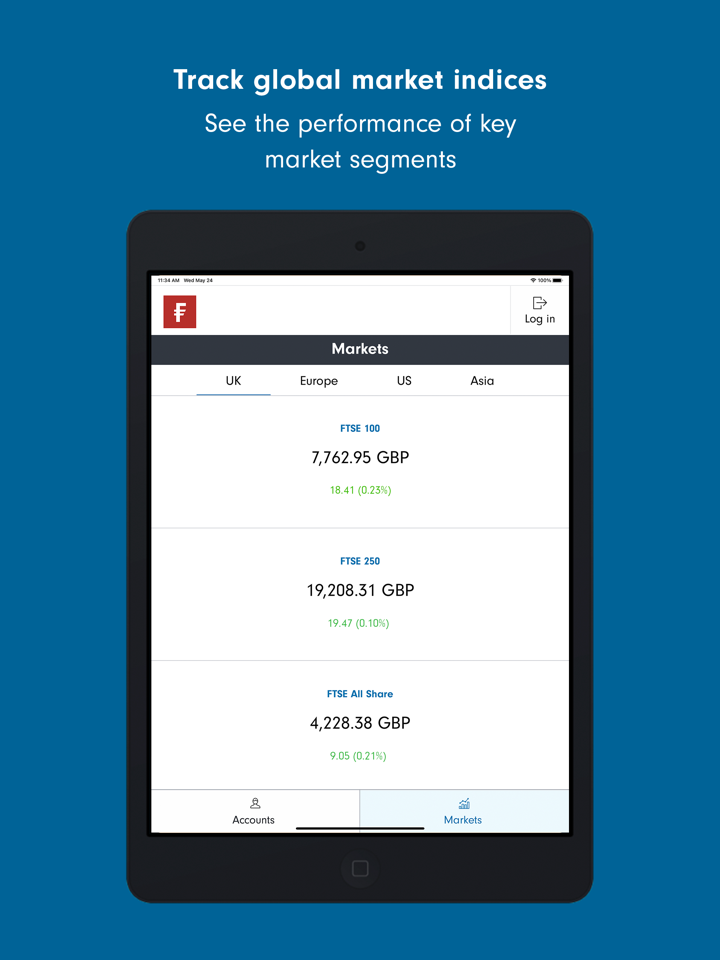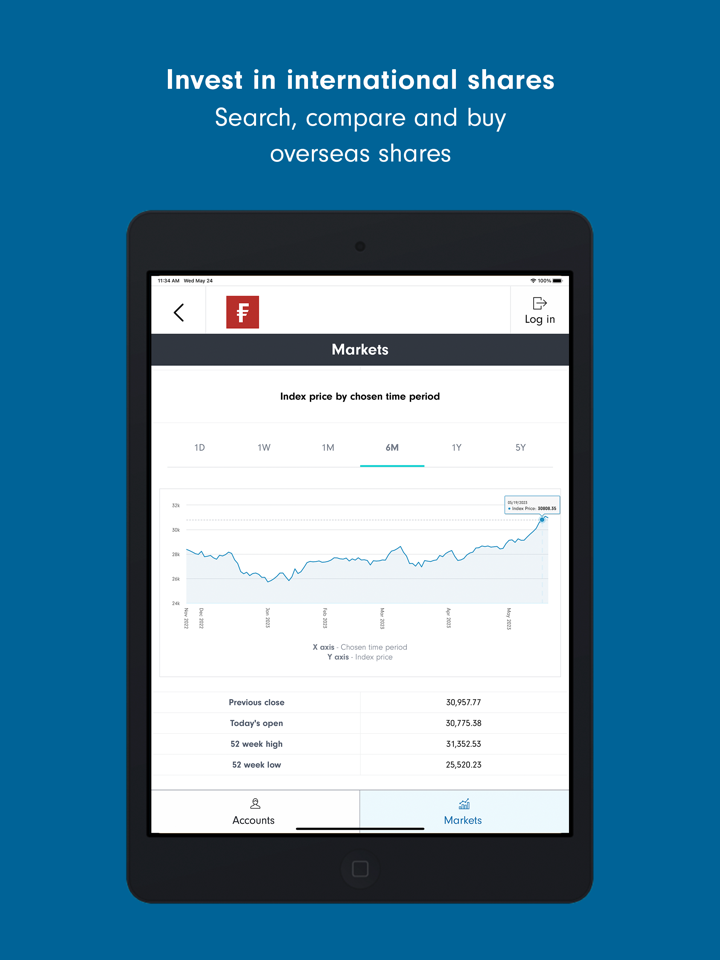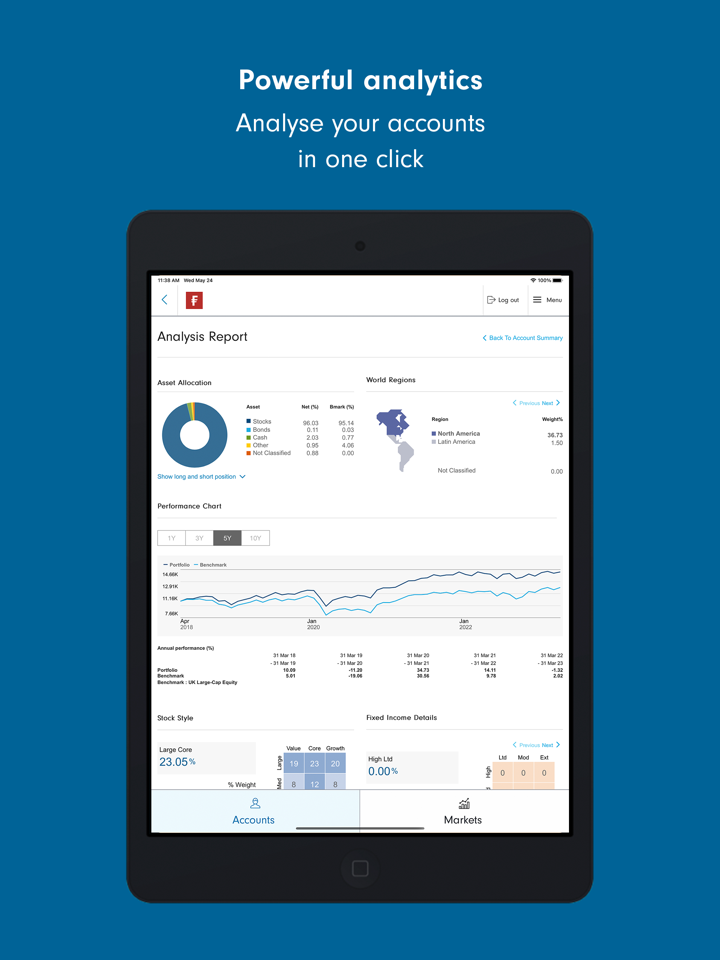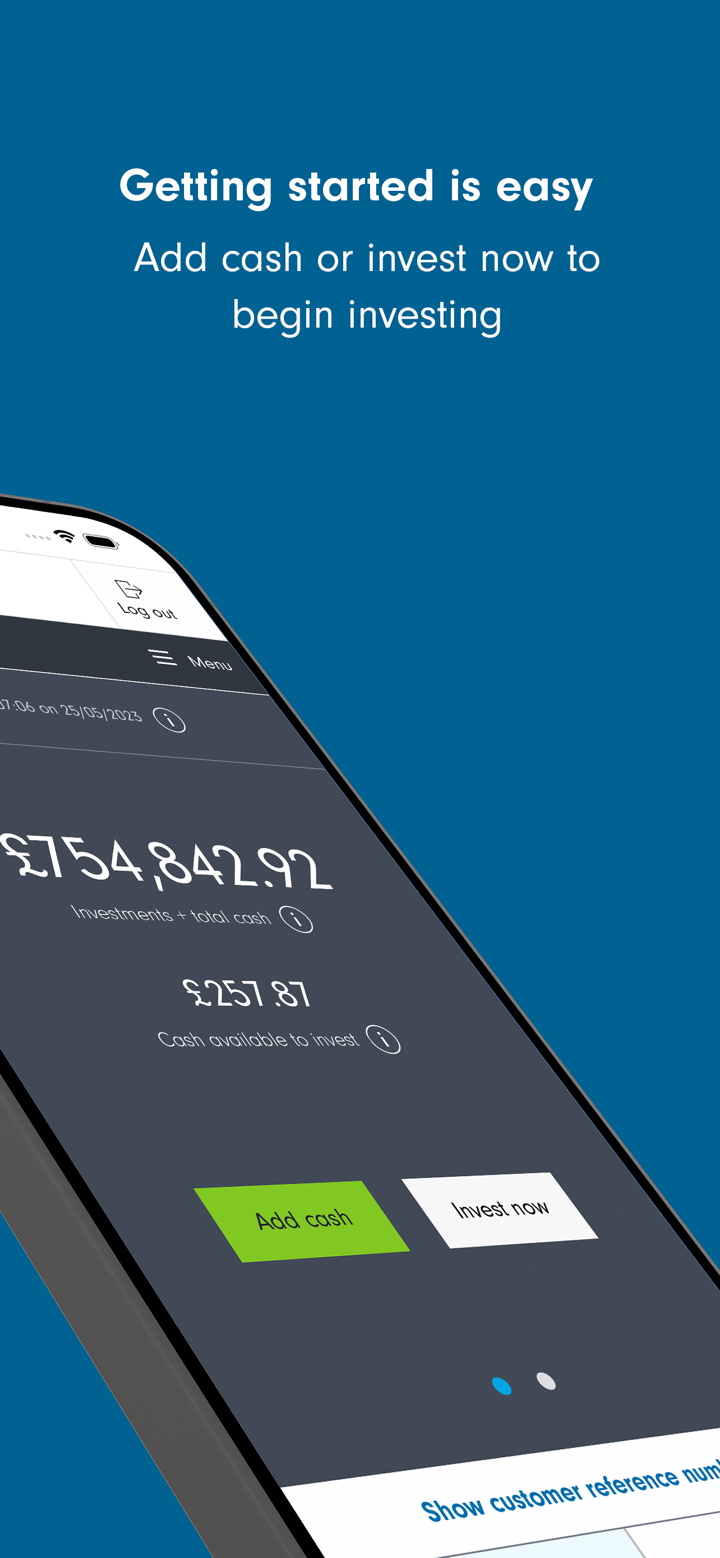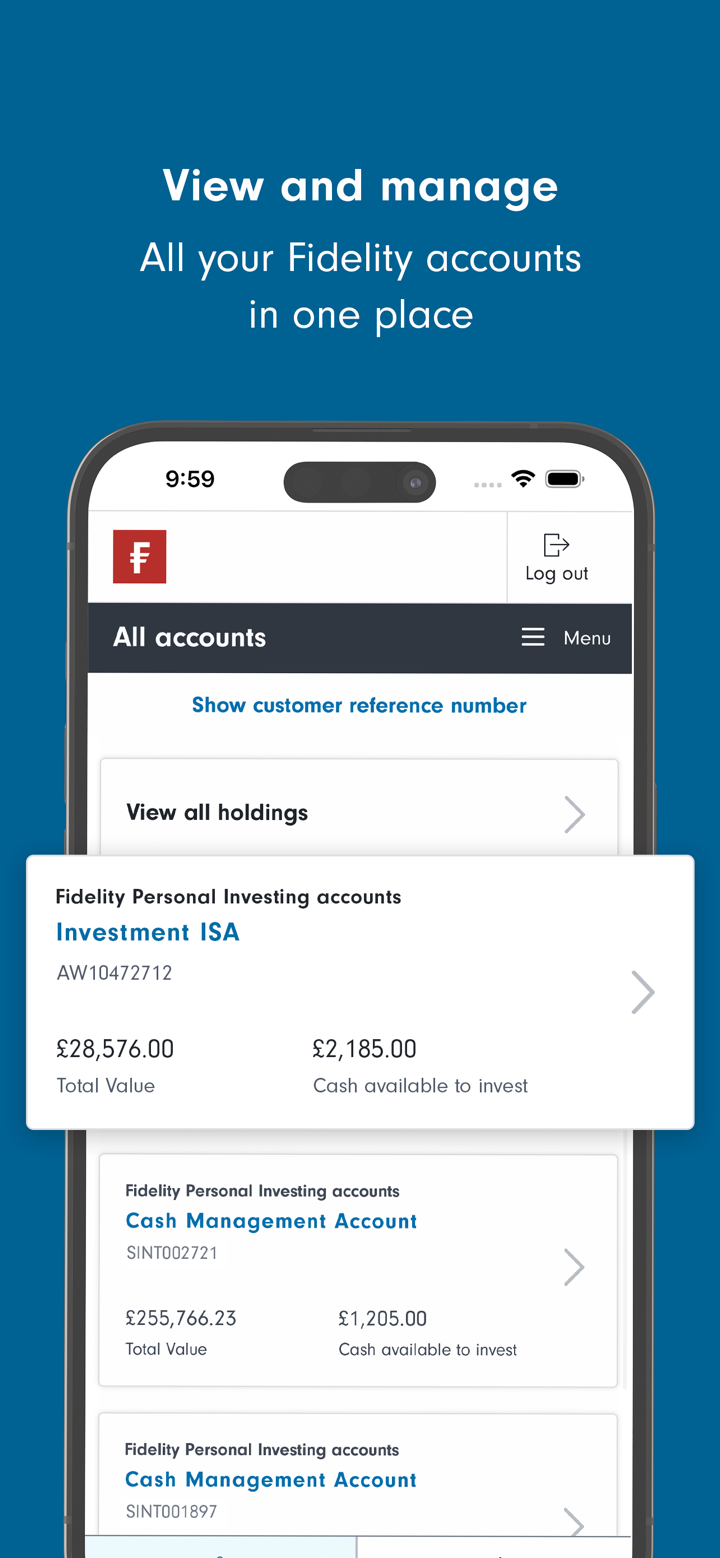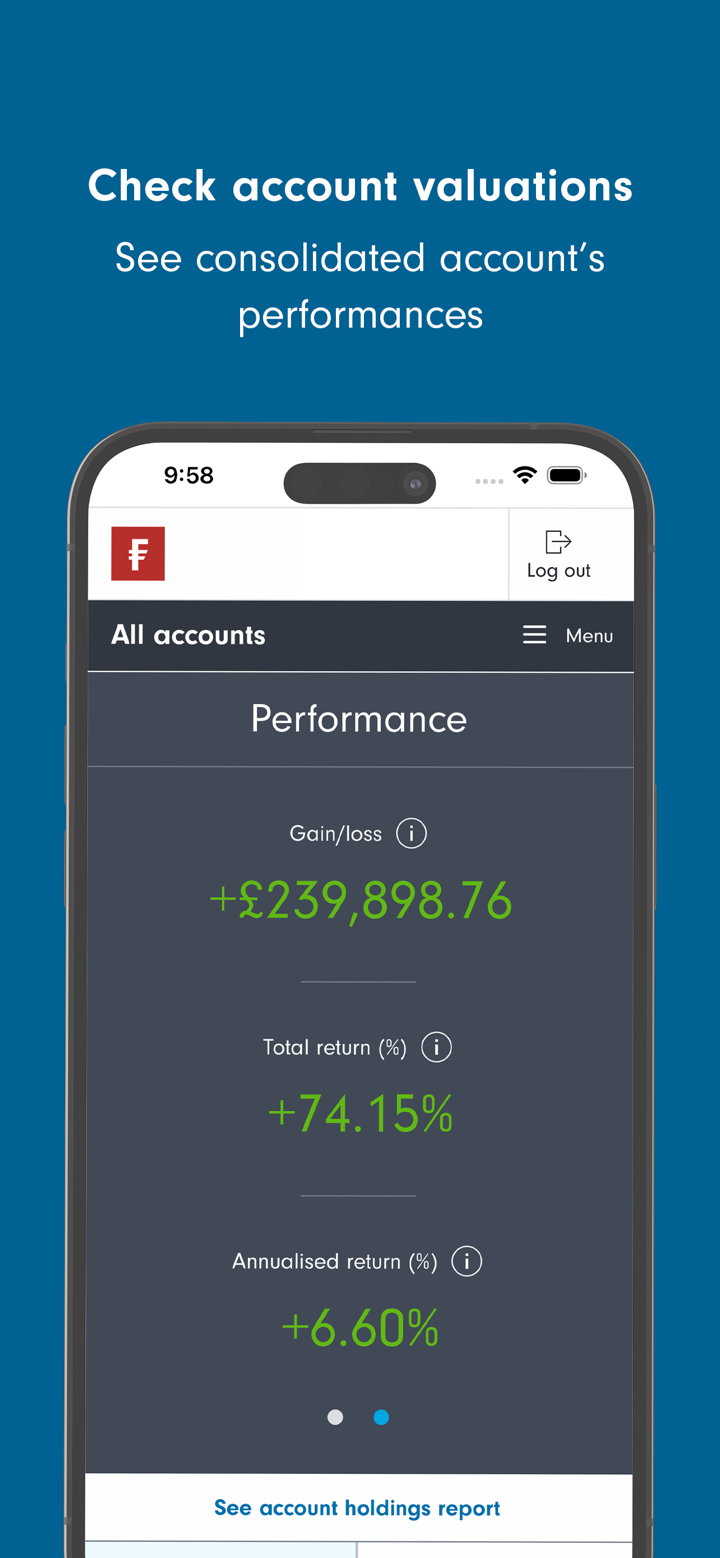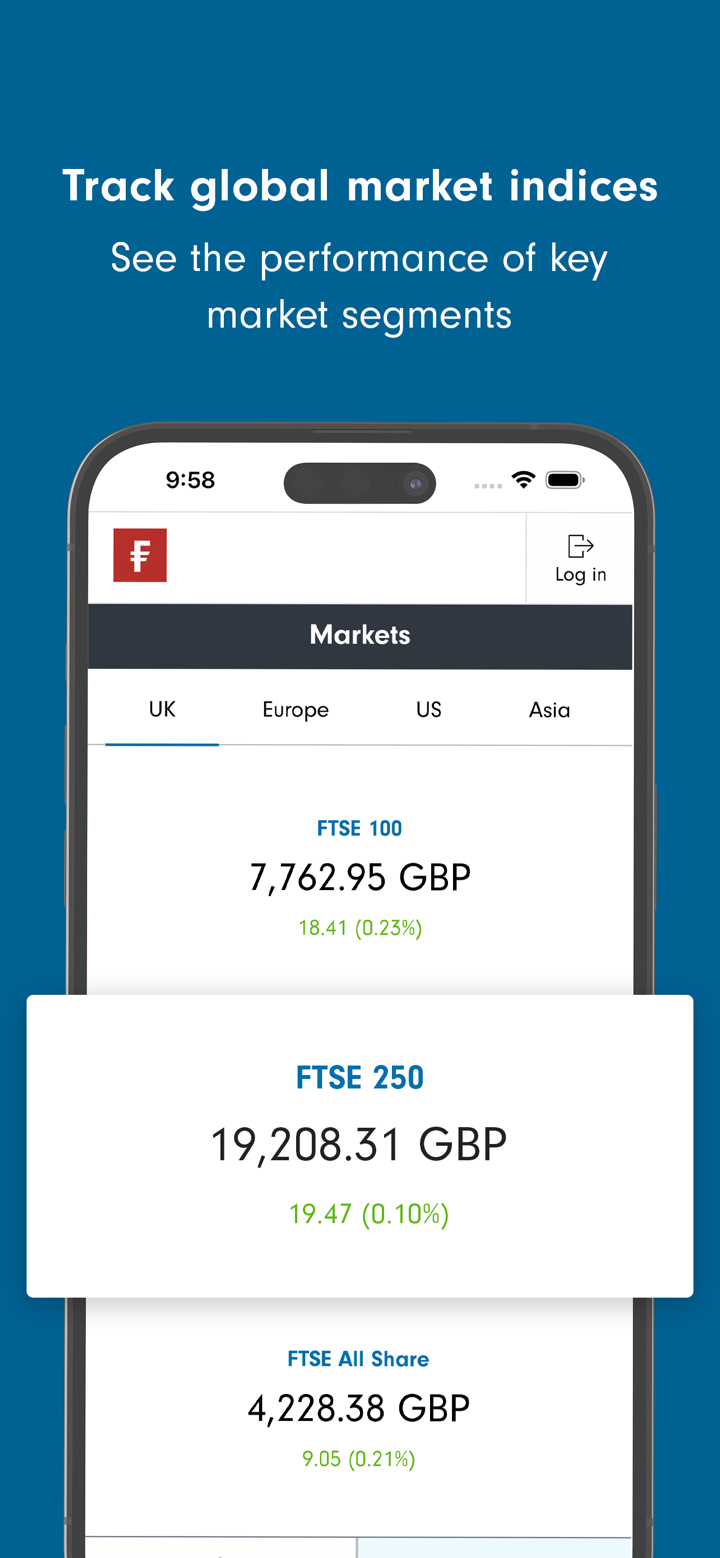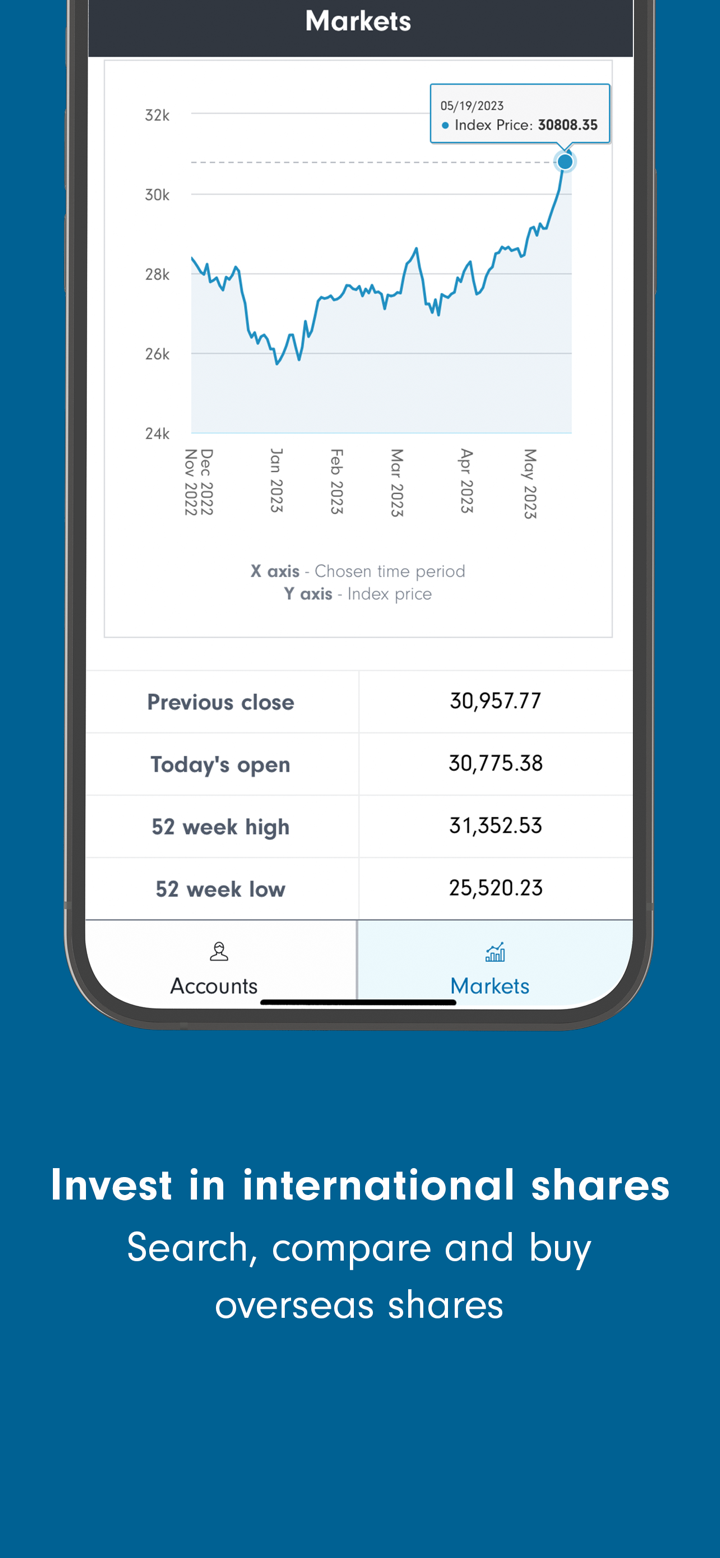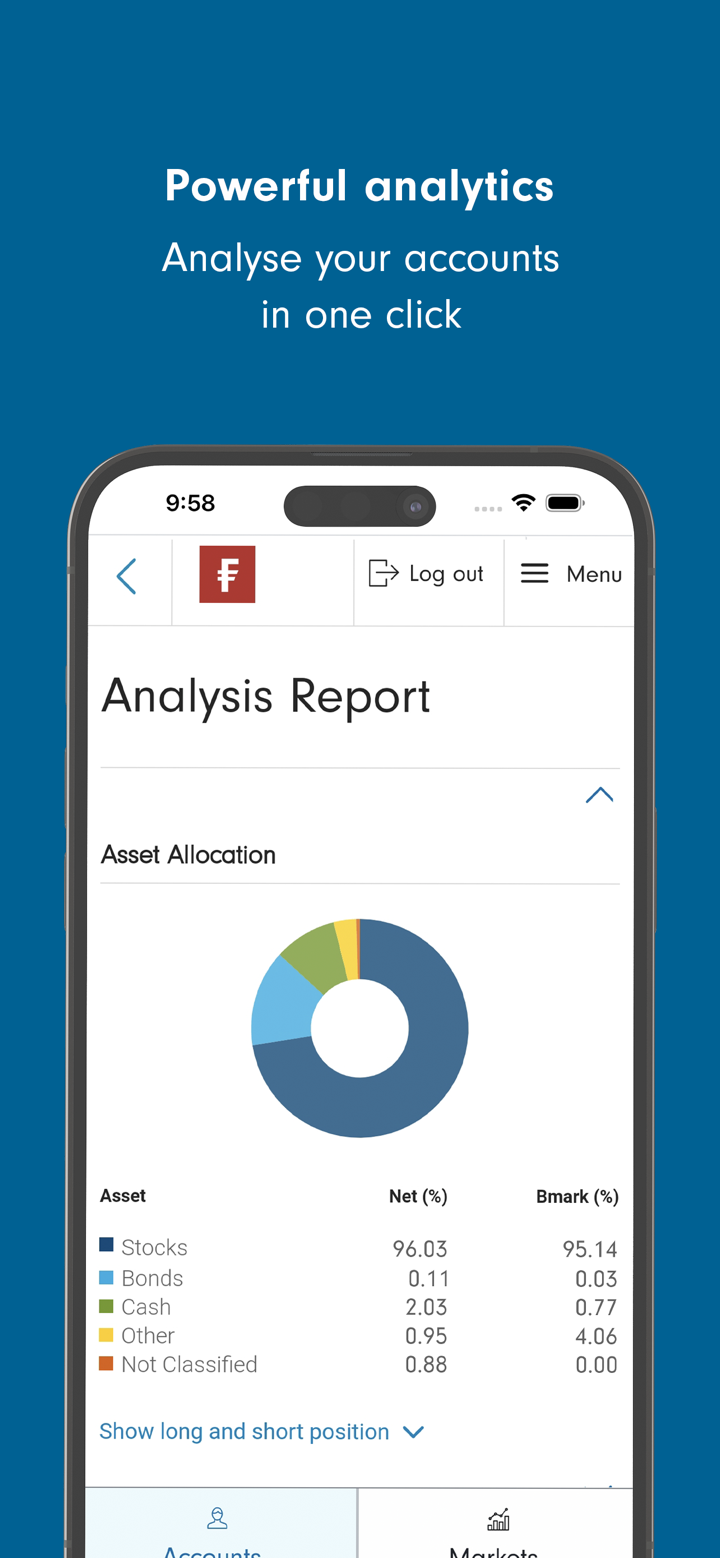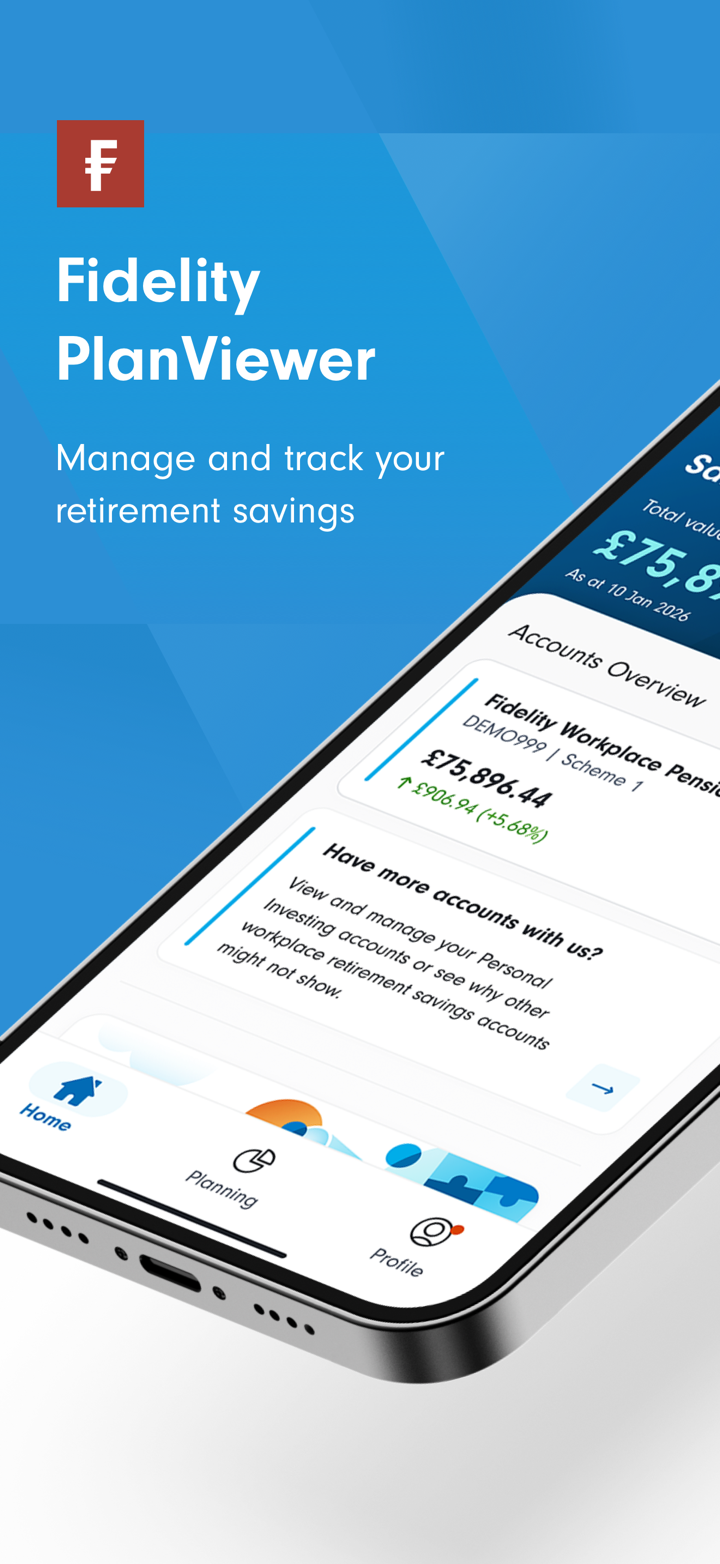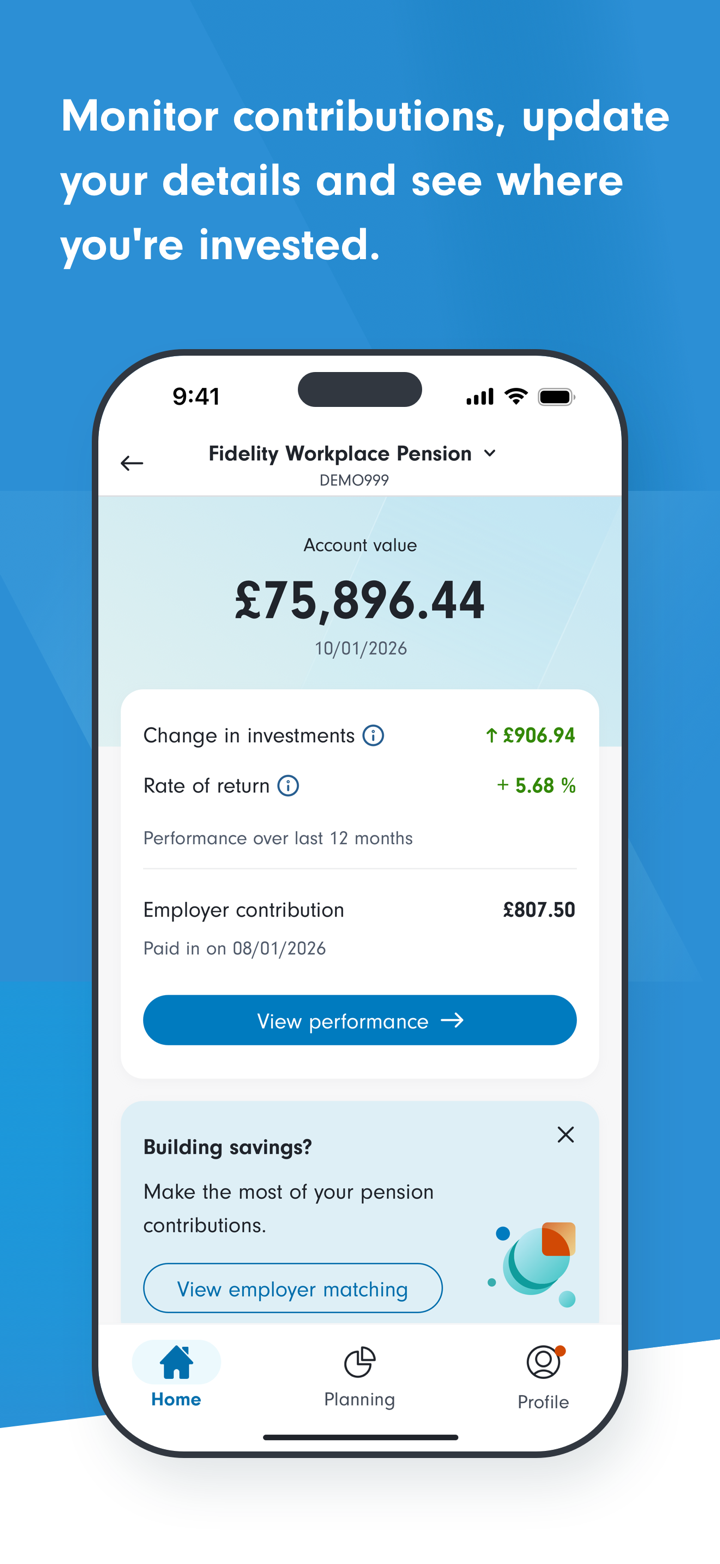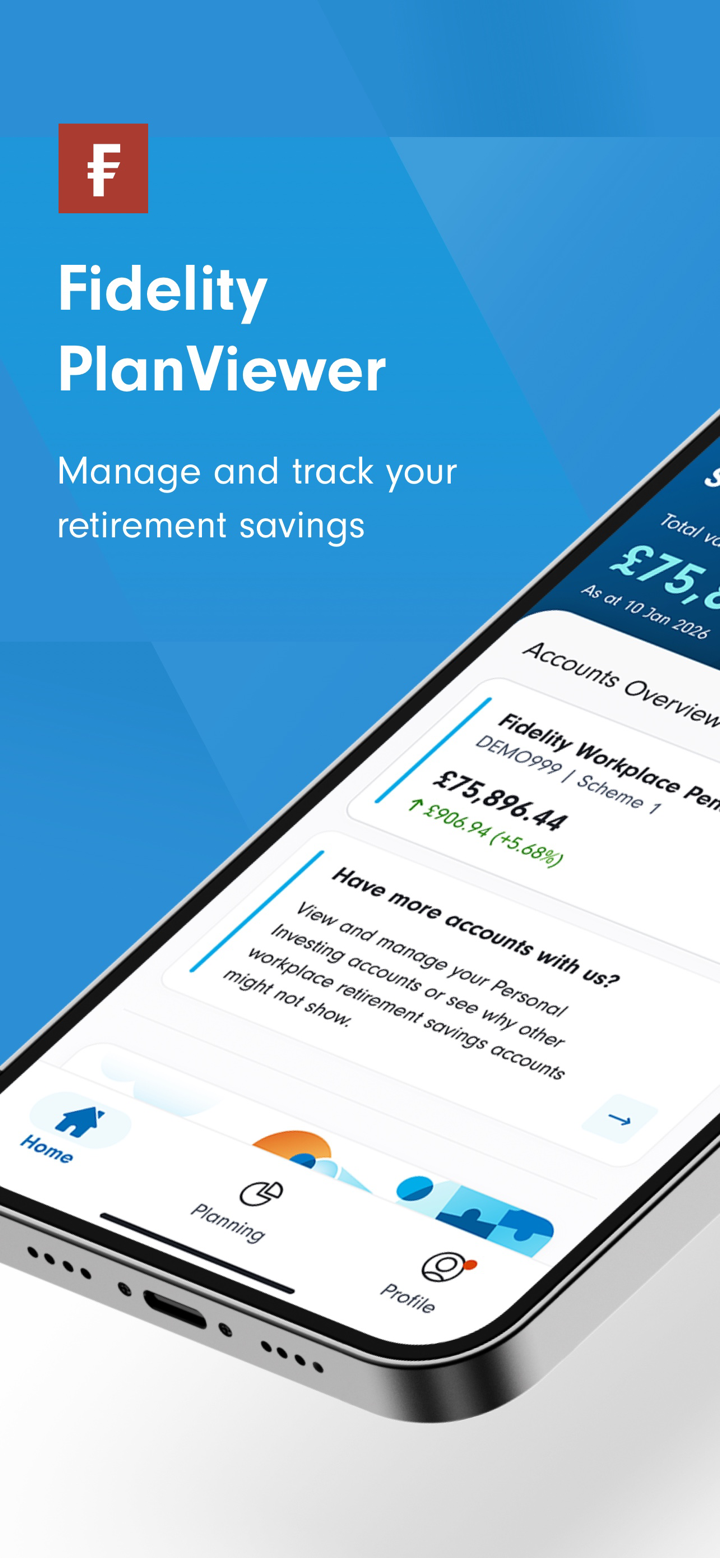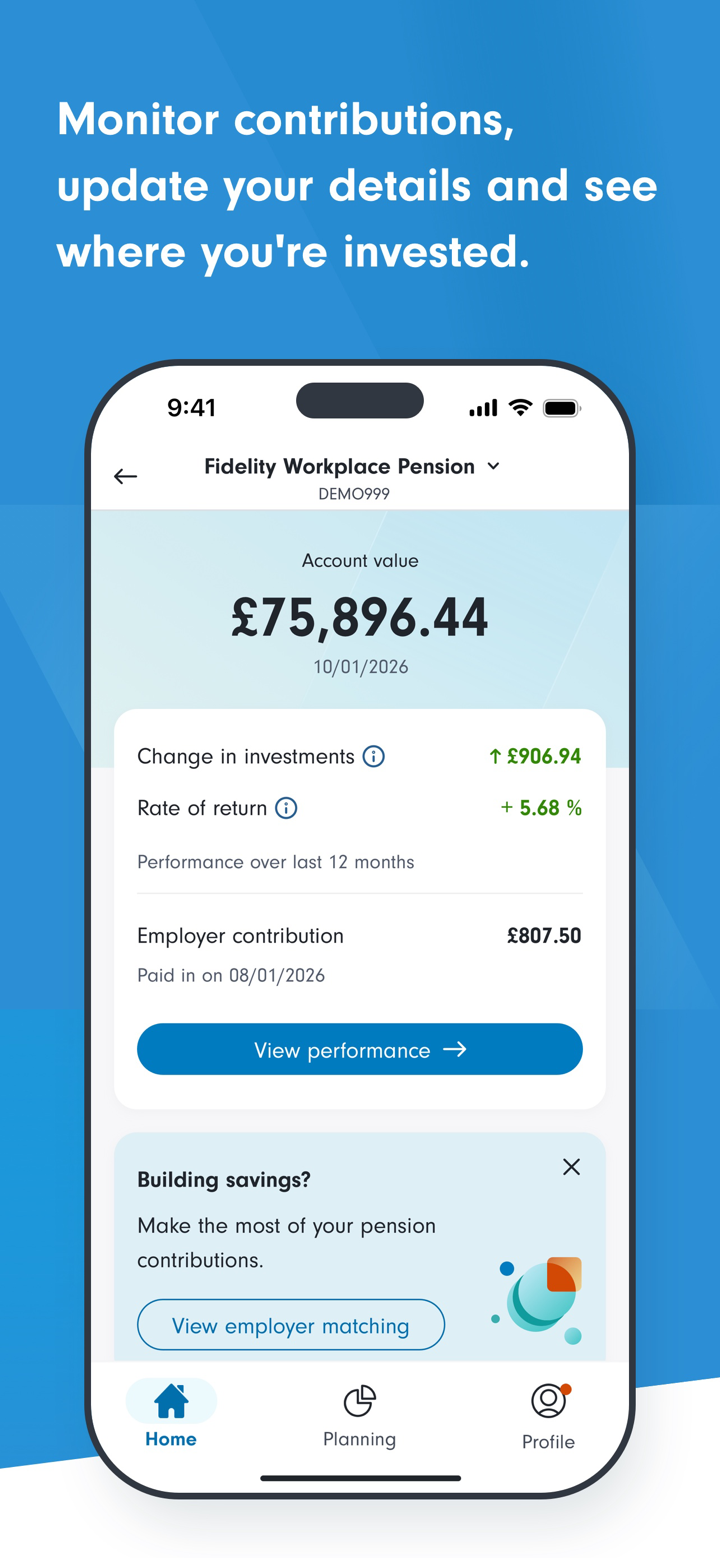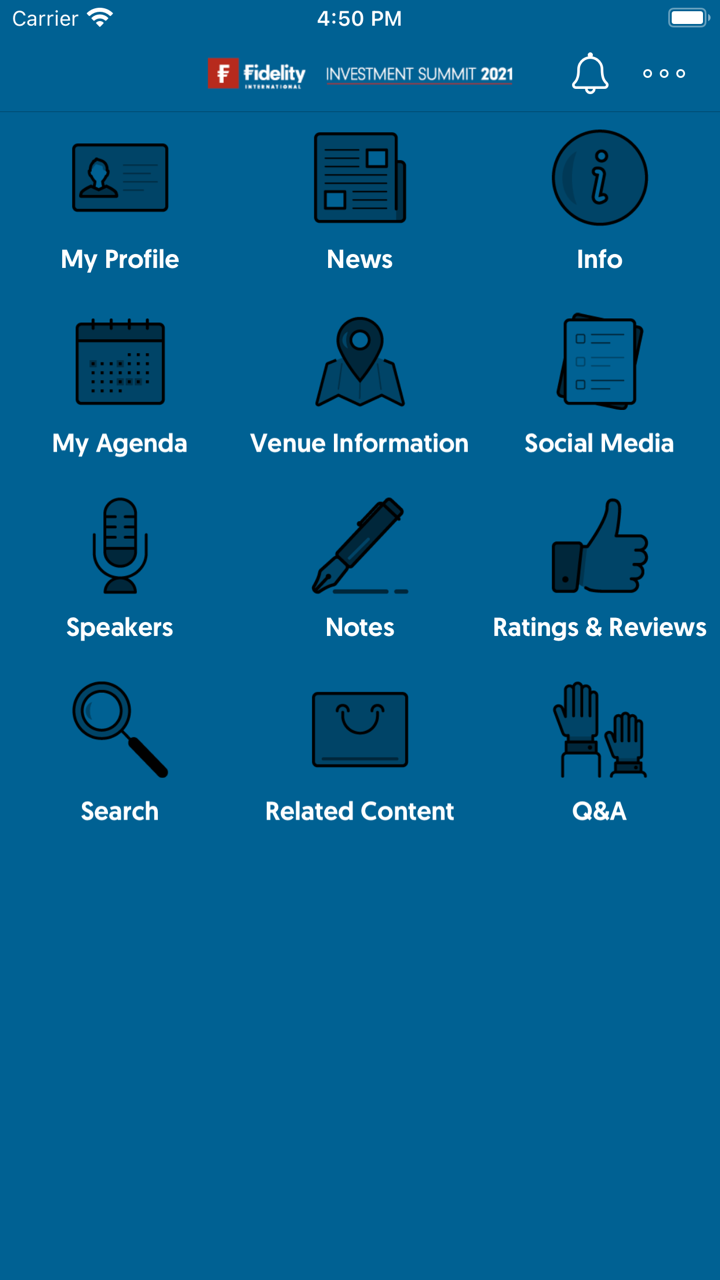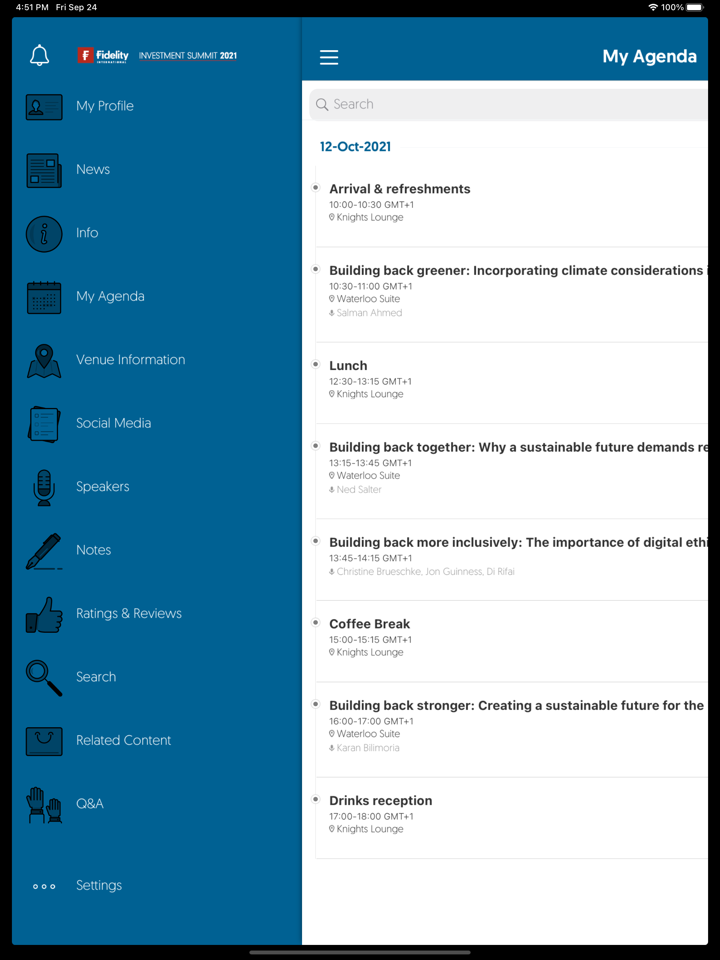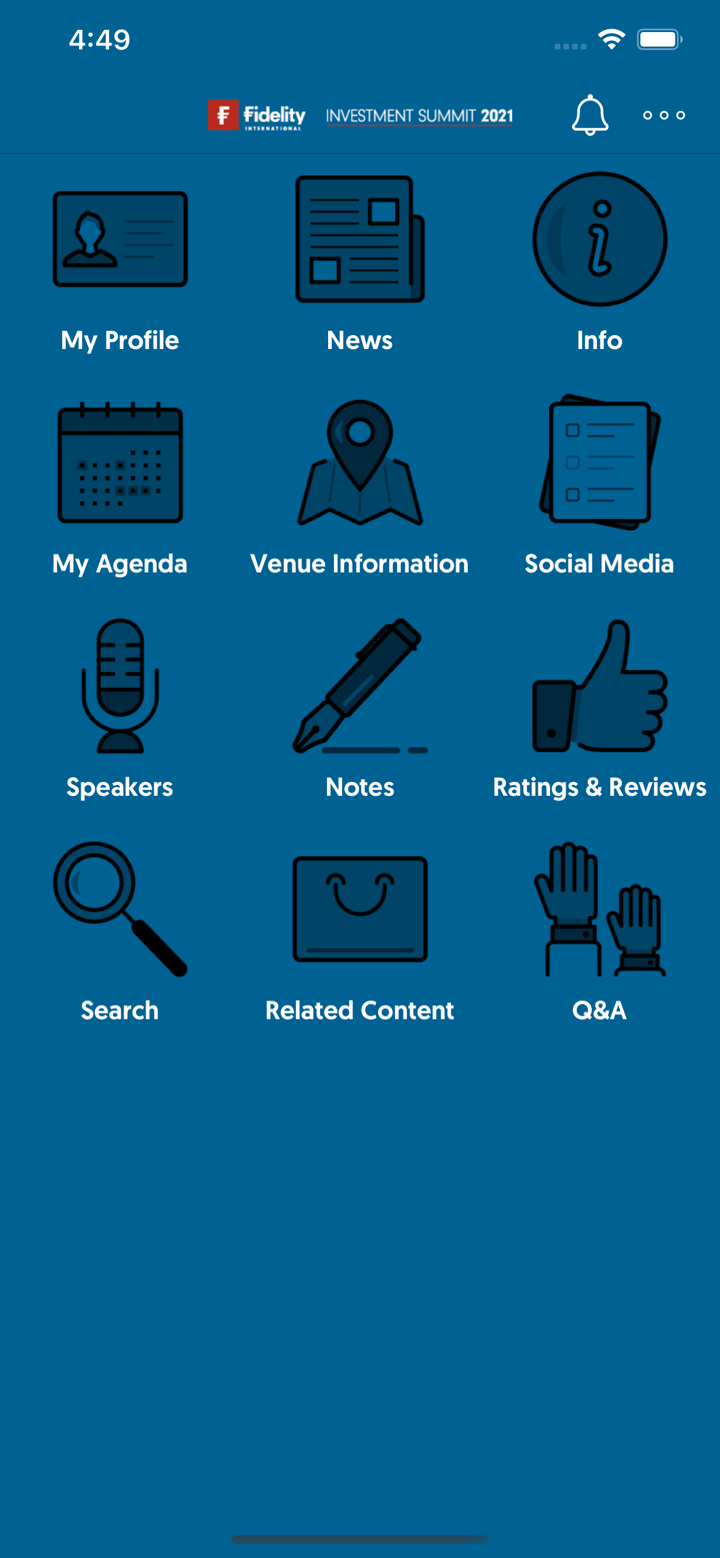회사 소개
| Fidelity 리뷰 요약 | |
| 설립 연도 | 1969 |
| 등록 국가/지역 | 미국 |
| 규제 | SFC |
| 제품 및 서비스 | 글로벌 상호펀드, MPF 및 ORSO 퇴직 계획, 테마 및 멀티 자산 투자 솔루션 |
| 데모 계정 | ❌ |
| 거래 플랫폼 | Fidelity 온라인, Fidelity 모바일 앱 |
| 최소 입금액 | HK$1,000/월 (월간 투자 계획) |
| 고객 지원 | 전화: (852) 2629 2629 |
| 이메일: hkenquiry@fil.com | |
Fidelity 정보
1969년에 설립된 Fidelity은 SFC 규제하에 국제 투자 솔루션을 제공하는 금융 회사입니다. FX나 CFD를 제공하지 않고 상호펀드, 퇴직 계획 (MPF/ORSO) 및 테마 전략에 집중합니다.
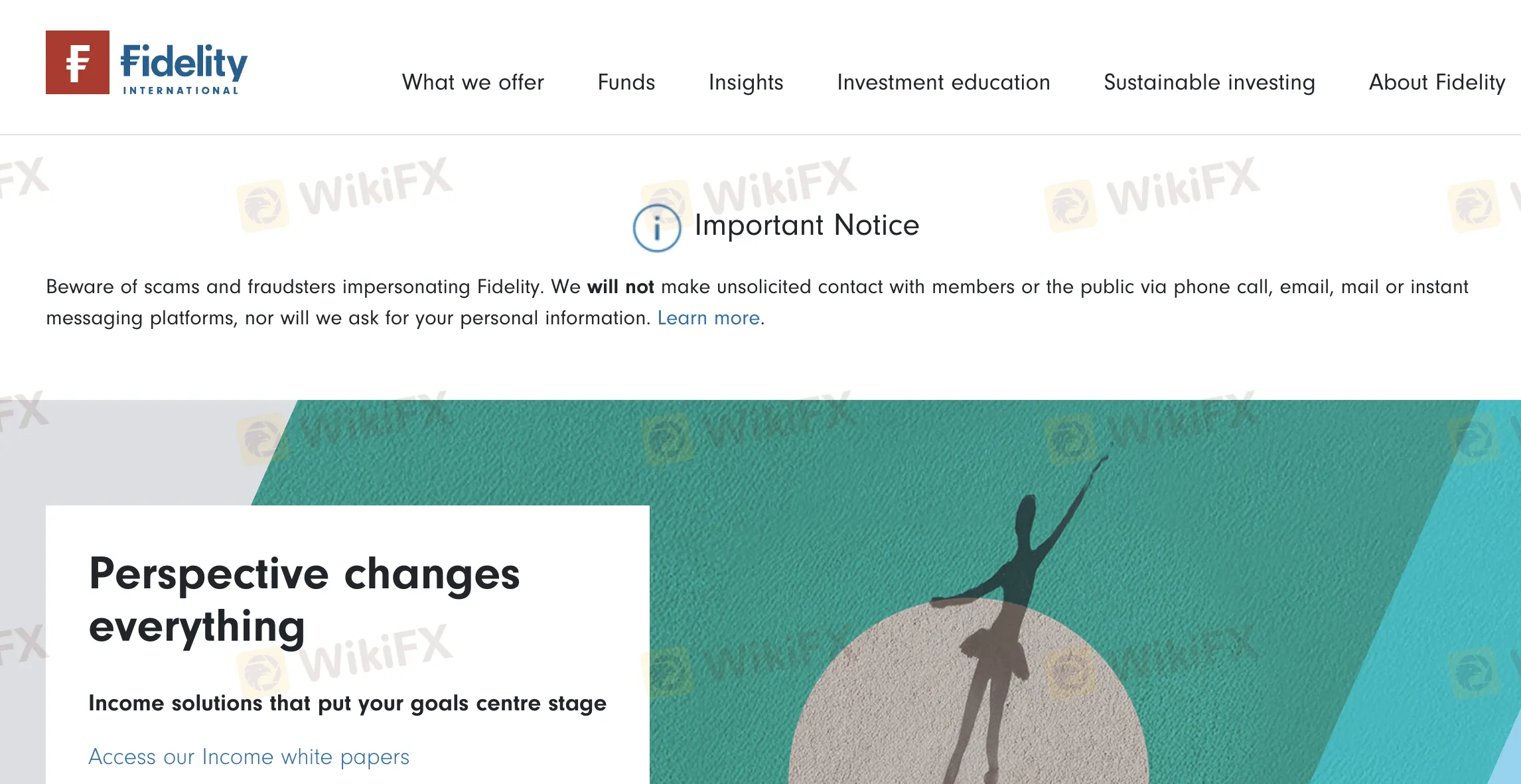
장단점
| 장점 | 단점 |
| SFC 규제 | 데모 계정 또는 이슬람 (스왑 무료) 계정 없음 |
| 다양한 상호펀드 및 퇴직 솔루션 선택 | 비교적 높은 수수료 |
| 계층별 수수료 구조는 고잔고 투자자에게 혜택 | |
| 운영 시간이 길다 | |
| 다양한 계정 유형 |
Fidelity 합법성
네, Fidelity은 규제를 받고 있습니다. 홍콩 증권 및 선물 위원회 (SFC)에서 선물 계약 거래 라이선스를 부여받았습니다. 라이선스 번호는 AAG408입니다.
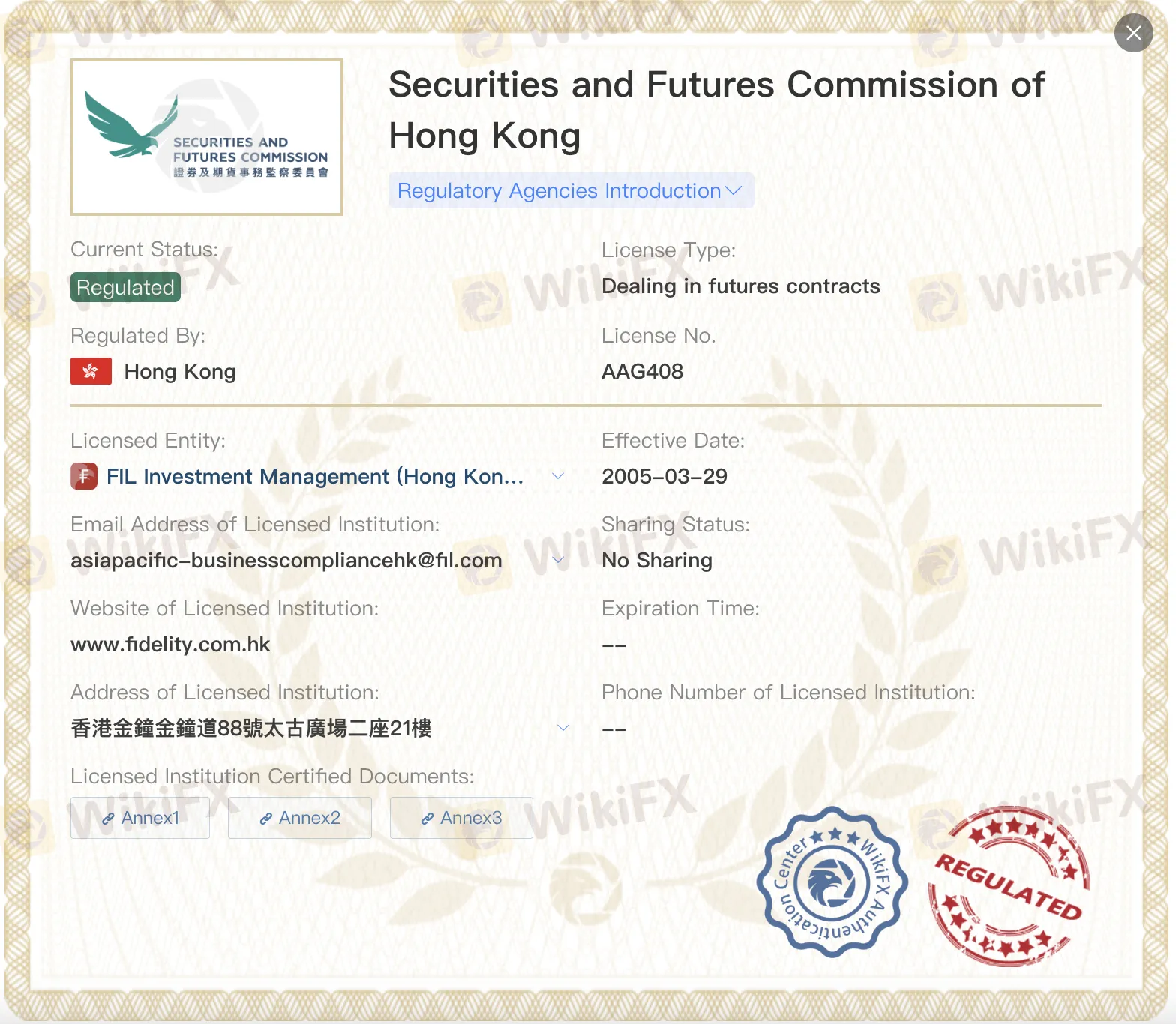
제품 및 서비스
Fidelity은 전 세계 상호펀드, 퇴직 계획 (MPF 및 ORSO) 및 테마 투자를 제공하여 투자자의 금융 목표에 맞게 조정합니다. 수입 창출, 지속 가능한 투자, 멀티 자산 전략을 제공합니다.
| 제품 및 서비스 | 특징 |
| 상호펀드 | 다양한 통화 및 자산 클래스의 글로벌 펀드 |
| 테마 투자 | 글로벌 트렌드 및 혁신 테마에 기반한 장기 투자 |
| 멀티 자산 솔루션 | 다양한 자산 유형을 결합한 다양한 포트폴리오 |
| 지속 가능한 투자 | ESG 및 책임 투자 전략에 중점 |
| MPF (의무적 연금 기금) | 다양한 위험 및 수입 프로필에 맞춘 퇴직 기금 |
| ORSO (직업적 퇴직 계획 법령) | 고용주 후원 퇴직 투자 계획 |
| 수입 전략 | 글로벌 수입 중심 투자 옵션 |
| 아시아 중심 투자 | 아시아 시장에서 성장 기회를 타겟팅한 펀드 |
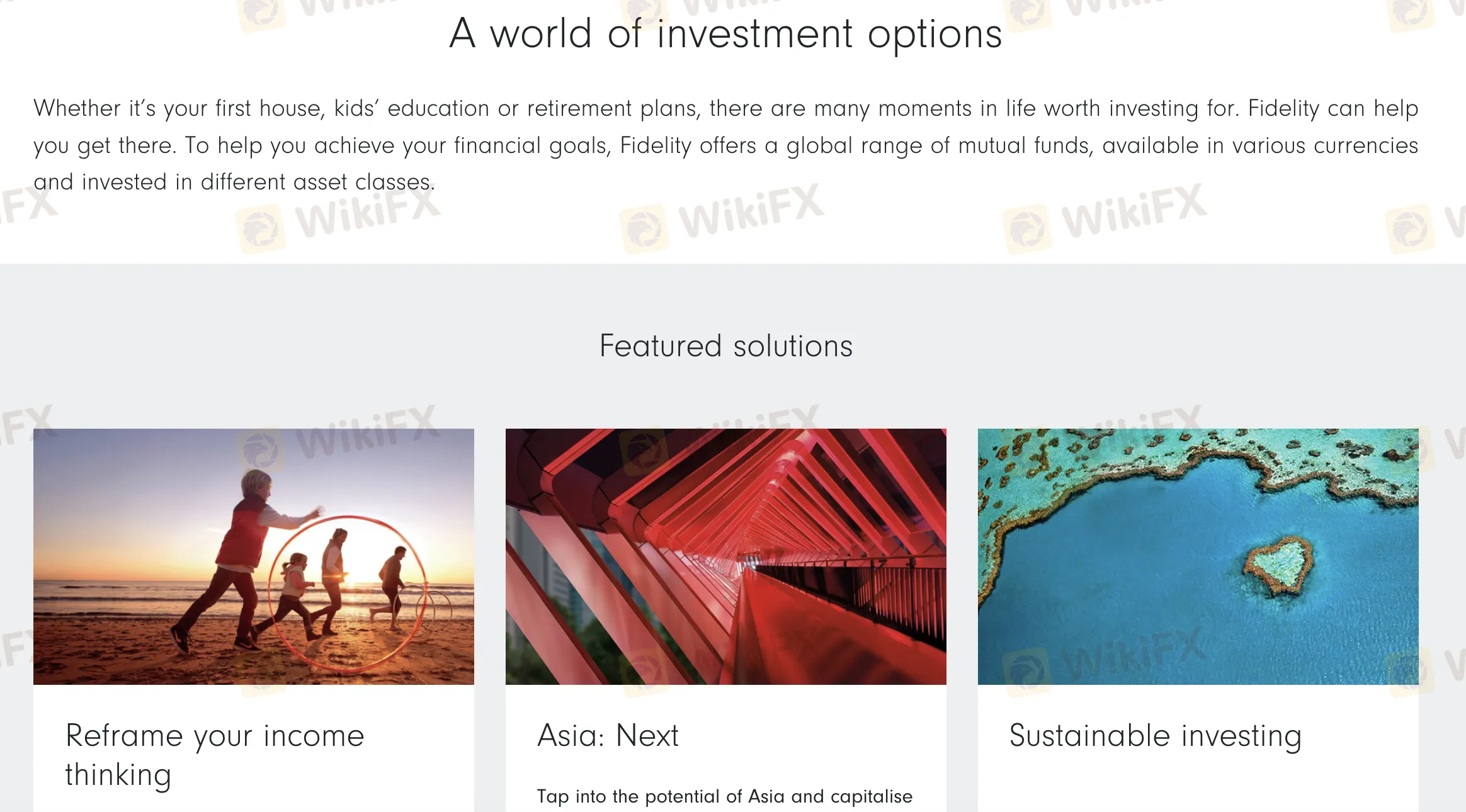
계정 유형
Fidelity은 개인 투자자, MPF/ORSO 회원, 중개인 및 기관 투자자를 위한 네 가지 유형의 라이브 계정을 제공합니다. 데모 계정이나 이슬람(스왑 무료) 계정은 제공되지 않습니다.
| 계정 유형 | 적합 대상 |
| 개인 투자자 | 자체 투자를 관리하는 개인 |
| MPF / ORSO 계정 | 홍콩 퇴직 연금 제도 하에서 근로자 및 고용주 |
| 중개인 | 고문, 자산 관리자, 금융 컨설턴트 |
| 기관 투자자 | 연금, 기업 및 가족 사무실과 같은 기관 |
Fidelity 수수료
Fidelity의 수수료는 티어 구조를 따릅니다. 큰 투자 금액은 낮은 수수료를 적용받지만, 작은 투자는 더 높은 수수료를 부담합니다. 전반적으로 산업 기준에 따라 중간에서 높은 비용 구조를 갖고 있습니다.
| 투자 방법 | 수수료 유형 | 투자 잔액(USD) | 현금 펀드 | 채권 펀드 | 주식 및 기타 펀드 |
| 일시 투자 | 매출 수수료 | ≥ 1,000,000 | 0.00% | 0.30% | 0.60% |
| 500,000 – <1,000,000 | 0.45% | 0.90% | |||
| 250,000 – <500,000 | 0.60% | 1.20% | |||
| 100,000 – <250,000 | 0.75% | 1.50% | |||
| 50,000 – <100,000 | 1.05% | 2.10% | |||
| <50,000 | 1.50% | 3.00% | |||
| 전환 수수료 | ≥ 1,000,000 | 0.10% | - | ||
| 500,000 – <1,000,000 | 0.15% | - | |||
| 250,000 – <500,000 | 0.20% | - | |||
| 100,000 – <250,000 | 0.25% | - | |||
| 50,000 – <100,000 | 0.35% | - | |||
| <50,000 | 0.50% | - | |||
| 월간 투자 계획 | 매출 수수료 | <HK$20,000/month | 1.00% | - | - |
| ≥HK$20,000/month | 0.00% | - | - |
거래 플랫폼
| 거래 플랫폼 | 지원 | 사용 가능한 장치 | 적합 대상 |
| Fidelity 온라인 | ✔ | 웹(PC, 맥) | 온라인 포트폴리오를 관리하는 장기 투자자 |
| Fidelity 모바일 앱 | ✔ | iOS, 안드로이드 | 이동 중 포트폴리오 접근이 필요한 투자자 |

입출금
Fidelity 표준 입금 또는 출금에 대해 추가 수수료를 부과하지 않습니다. 그러나 사용한 방법에 따라 은행 또는 중개인 수수료가 부과될 수 있습니다. 월간 투자 계획의 경우 매월 펀드 당 최소 입금액은 HK$1,000이며, 일시불 투자에 대해 명시적인 최소 금액이 명시되어 있지 않습니다.
| 결제 방법 | 최소 금액 | 수수료 | 처리 시간 |
| 전신 이체 | / | 은행/중개인 수수료 | 지급 완료 후 |
| HSBC 청구서 결제 (인터넷 뱅킹) | / | ❌ (에이전트 수수료 제외) | 즉시 |
| 어음/어음 주문 | / | 에이전트 은행 수수료 | |
| HSBC / 항생 은행 당일 직불 | / | ❌ (자금 부족 시 은행 수수료 발생 가능) | |
| 개인 수표 (HK 청산) | HK$1,000,000 이하 | ❌ | |
| 개인 수표 (비-HK 청산) | / | 수령 수수료가 부과될 수 있음 | 청산 후 |
